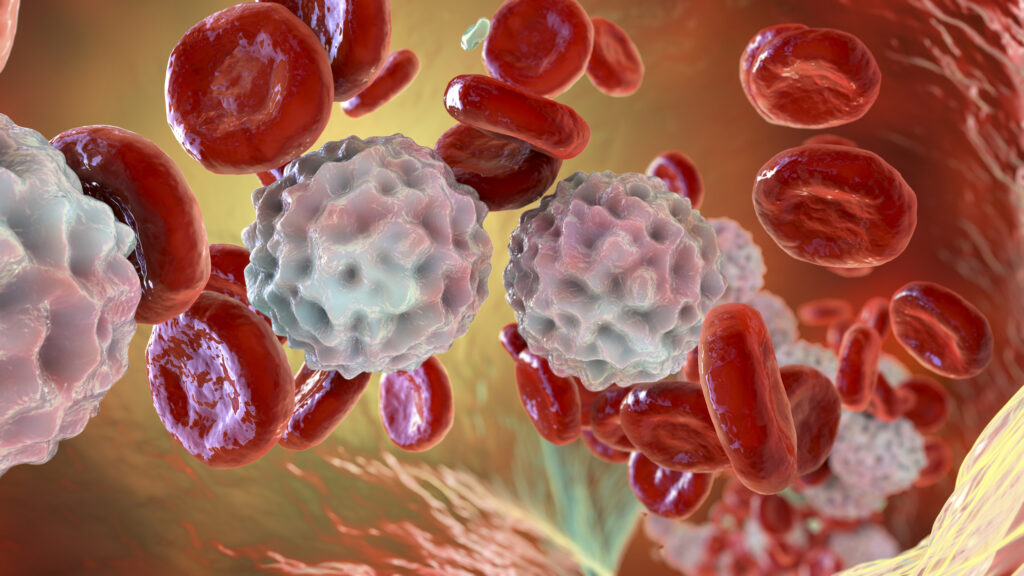In just the past five years, the development of new therapeutics has changed the paradigm for the treatment of lymphomas, thereby improving outcomes and quality of life. As research continues, a major goal is to find more tolerable treatment options with higher efficacy.
At Siteman Cancer Center, 35 open clinical trials are investigating novel immunotherapies, cellular therapies, bispecific antibodies, and therapies adjunctive to chemotherapy for the treatment of lymphomas. One of these is multi-center clinical trial of a new, reversible BTK inhibitor, HMPL-760, to treat refractory B-cell lymphoma. Another clinical trial is investigating the first dual inhibitor to block EZH1 and EZH2 proteins, both of which are linked to cancer cell growth.
Other trials target two vexing problems with many lymphoma treatments – relapse and intolerance. To tackle these issues, many trials are investigating better ways to harness the immune system. In this realm, more than 50 bispecific T-cell Redirectors for the treatment of relapsed or refractory B-cell lymphomas are being studied here and nationwide.
“The benefit of bispecific T-cell Redirectors has been amazing in early trials, with 70 to 80 percent of relapsed/refractory lymphoma patients enrolled in studies maintaining remission after treatment,” said Neha Mehta-Shah, MD, MSCI, a Washington University medical oncologist at Siteman.
Mehta-Shah is a principal investigator or collaborator on such trials. She is nationally recognized for her research into biomarkers that can help predict response or resistance to various therapies.
Early research conducted at Washington University also has resulted in impressive responses to the combination of brentuximab-lenalidomide for the treatment of relapsed/refractory diffuse large B-cell lymphoma. Now expanded to a national randomized drug trial, the brentuximab combination potentially has greater impact than the current combination of rituximab-lenalidomide and potentially could be used with a broader range of patients.
T-Cell Therapies
Early phase trials using CAR T-cell or NK CAR T-cell therapies for lymphoma treatment are ongoing at Siteman. Two of them, CTX110 and NK CAR T FT596, as well as an upcoming trial called WUCAR-007, focus on off-the-shelf CAR T-cell treatments, which reduce the timeframe to initiate treatment. Another trial is investigating the effectiveness of a “booster” used in conjunction with Kymriah™, an approved CAR T-cell therapy, to create a more potent treatment response to treat relapsed refractory large B-cell lymphomas. A Phase II study also is underway to evaluate the effectiveness of Duvelisib, given before and after CAR T-cell therapy, to augment CAR-T function and mitigate severe side effects such as cytokine release syndrome.
“As one of the nation’s leading centers for CAR T-cell and NK therapy research, we are pioneers in many cellular therapy trials that have shown, and are showing, great promise,” said Armin Ghobadi, MD, clinical director for Washington University’s Center for Gene and Cellular Immunotherapy. “Over the past three years, we have enrolled almost 400 patients in our various lymphoma clinical trials.”
To view the list of active clinical trials at Siteman, go to siteman.wustl.edu/clinical-trials.
